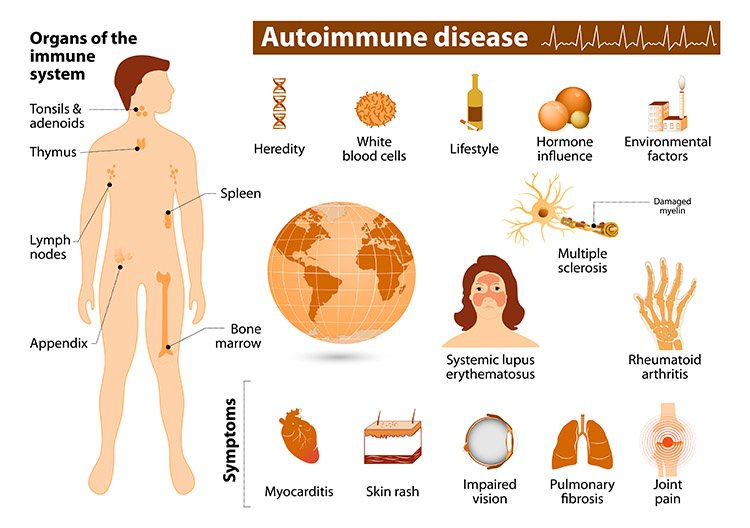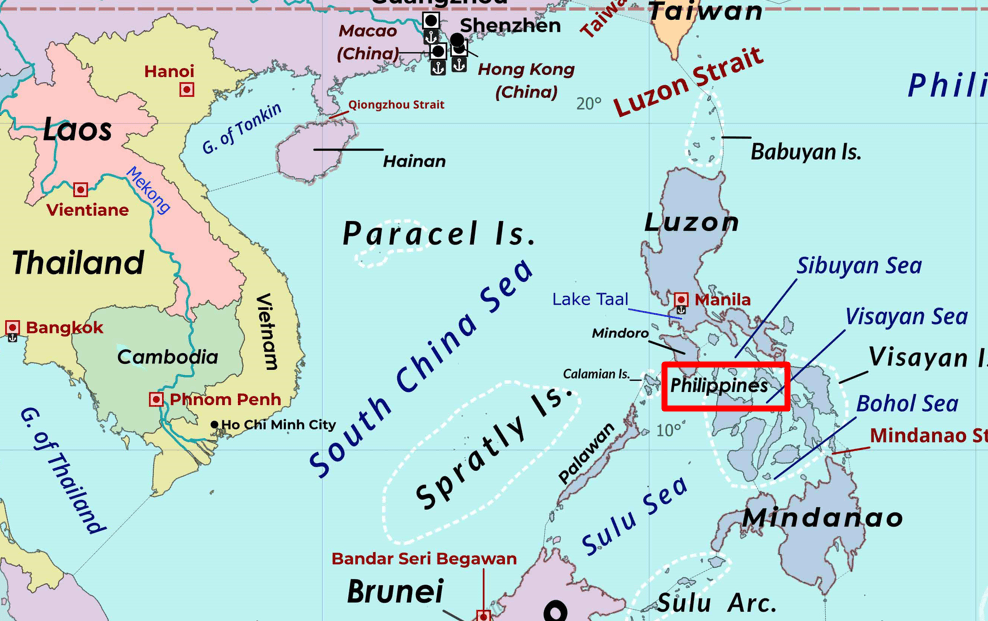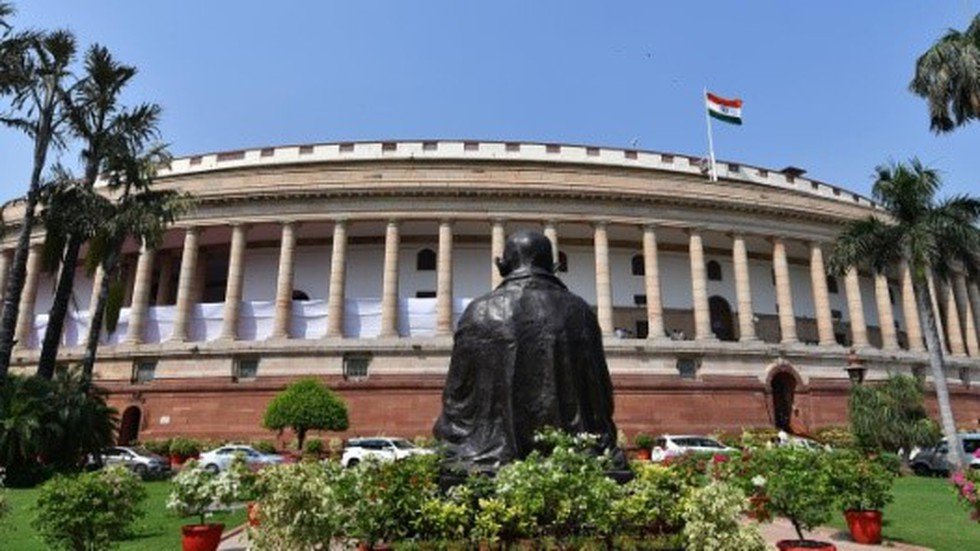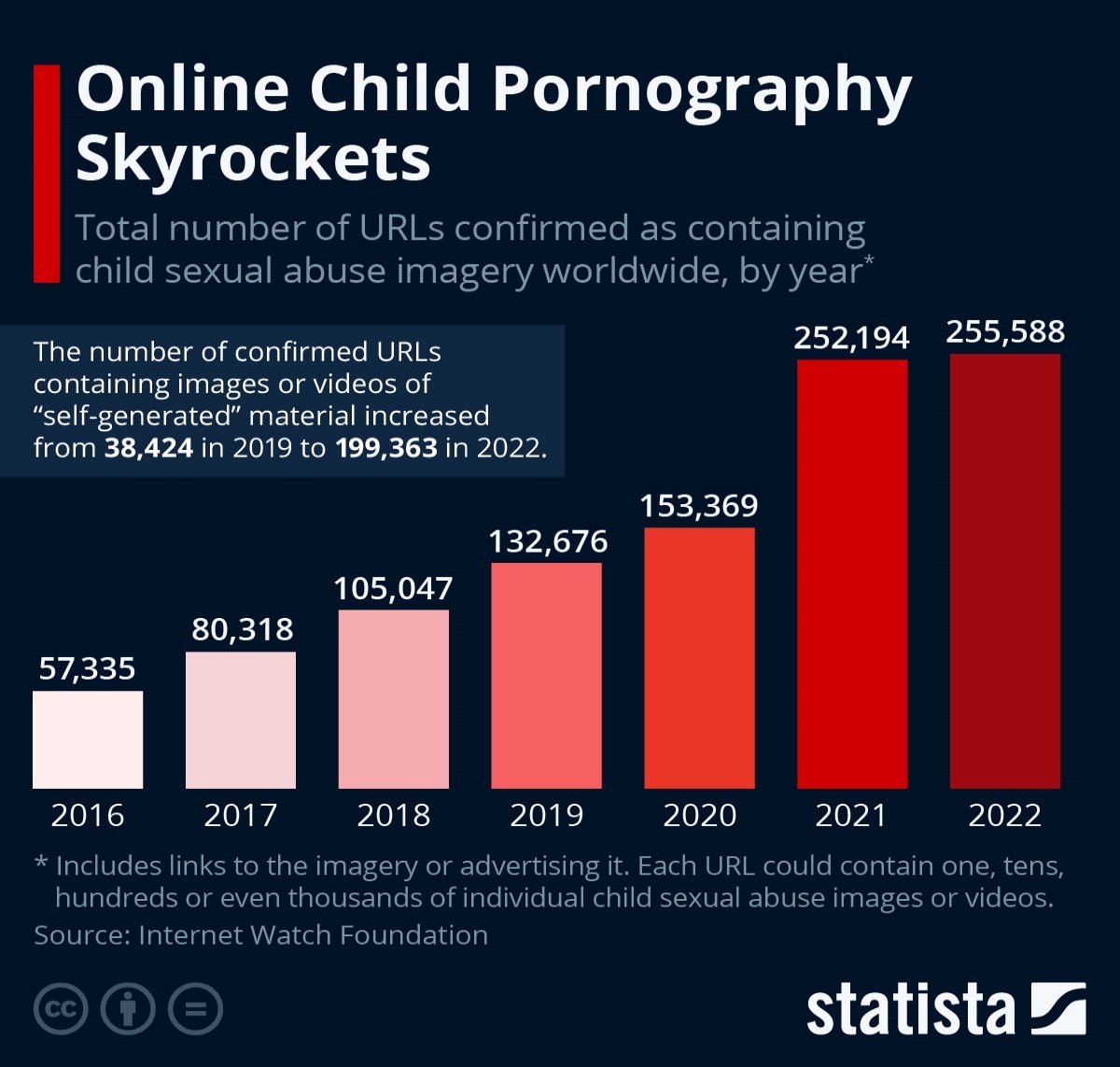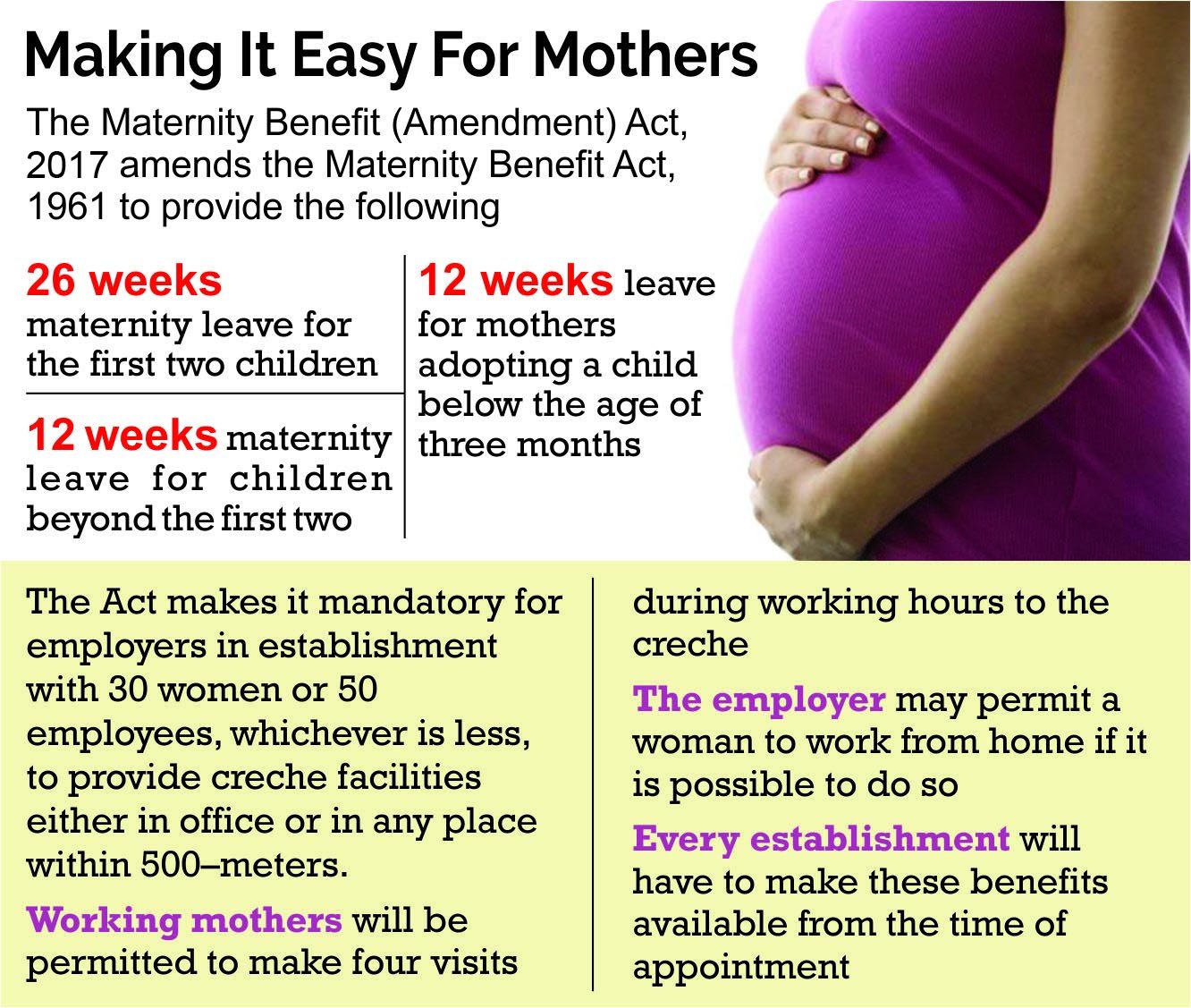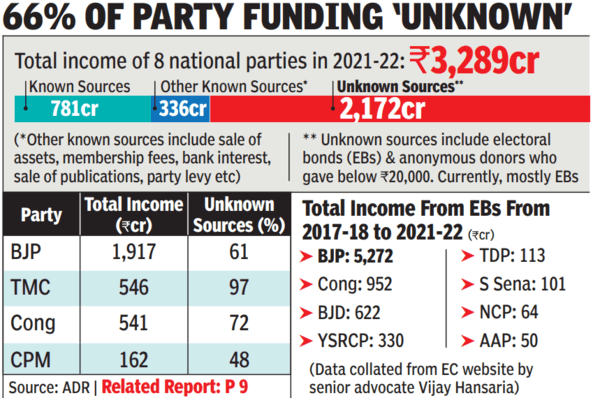
Patanjali banned from Marketing of Products
Subscribers of "Current Affairs" course can Download Daily Current Affairs in PDF/DOC
Subscribe to Never Miss an Important Update! Assured Discounts on New Products!
Must Join PMF IAS Telegram Channel & PMF IAS History Telegram Channel
- Context (IE): SC banned Patanjali from marketing its products until further orders are passed.
- The IMA claimed that Patanjali’s advertisement titled “MISCONCEPTIONS SPREAD BY ALLOPATHY” was in direct violation of the Drugs & Other Magical Remedies Act, 1954 (DOMA), and the Consumer Protection Act, 2019 (CPA).
What is Misleading Advertisement?
- Under the Consumer Protection Act, 2019, misleading advertisement in relation to any product or service is defined as an advertisement, which:
- Falsely describes such product or service; or
- Gives a false guarantee to, or is likely to mislead the consumers as to the nature, substance, quantity or quality of such product or service; or
- Conveys an express or implied representation which, if made by the manufacturer or seller or service provider thereof, would constitute an unfair trade practice; or
- Deliberately conceals important information.
- Misleading advertisements were not specifically covered by the law before the Consumer Protection Act of 2019.
Legislations to tackle Misleading Advertisements
- The Bureau of Indian Standards (Certification) Regulations, 1988
- Food Safety and Standards Act, 2006
- The Drugs and Magic Remedies (Objectionable Advertisements) Act, 1955 (DOMA)
- The Drugs and Cosmetics Act, 1940
- The Cigarettes and Other Tobacco Products (Prohibition of Advertisement and Regulation of Trade and Commerce, Production, Supply, and Distribution) Act, 2003
Regulators to deal with Misleading Advertisements
Insurance Regulatory Development Authority
- Under the IRDA (Insurance Advertisements and Disclosure) Regulations, 2000, the Authority can direct issue of corrective advertisement.
- It can also direct discontinuance of the advertisement or any other action deemed fit by the Authority, in order to ensure that the interests of the public are protected.
Securities and Exchange Board of India
- The (Disclosure and Investor Protection) Guidelines, 2000 of the Securities and Exchange Board of India (SEBI) provides specific guidelines on advertisements.
Reserve Bank of India
- Under Reserve Bank of India Act, 1934, RBI has notified detailed directions on advertisements issued by non-banking financial companies, miscellaneous non-banking companies and residuary non-banking companies.
Advertising Standards Council of India
- ASCI was formed in 1985 by professionals from the advertising and media industry to ensure advertisements in India are fair, honest and are compliant with the ASCI Code.
Central Consumer Protection Authority (CCPA)
- Established under the Consumer Protection Act, 2019 to regulate matters relating to violation of rights of consumers, unfair trade practices and false or misleading advertisements which are prejudicial to the interests of public and consumers as a class.
- CCPA has notified the Guidelines for Prevention of Misleading Advertisements and Endorsements for Misleading Advertisements, 2022.
- These guidelines inter-alia provide for;
- Conditions for an advertisement to be non-misleading and valid;
- Certain stipulations in respect of bait advertisements and free claim advertisements; and,
- Duties of manufacturer, service provider, advertiser and advertising agency.
- These guidelines inter-alia provide for;
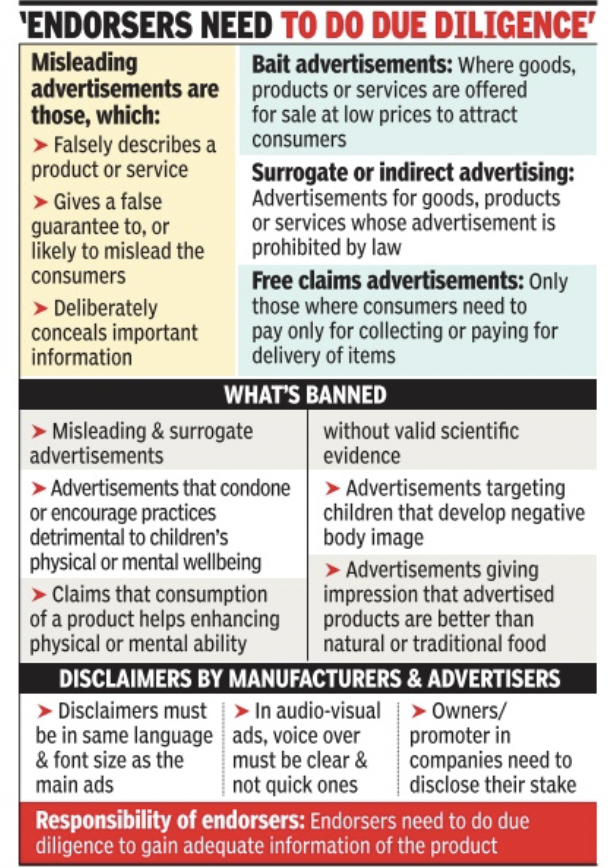
Penalty for Misleading Advertisements
- Publishing a misleading advertisement under the DOMA is punishable with up to six months imprisonment, and/or a fine for the first offence.
- Section 89 of the Consumer Protection Act, 2019 deals with punishments for false or misleading advertisements. It provides for punishment with imprisonment for a term which may extend to two years and with fine which may extend to ten lakh rupees.





![PMF IAS Environment for UPSC 2022-23 [paperback] PMF IAS [Nov 30, 2021]…](https://pmfias.b-cdn.net/wp-content/uploads/2024/04/pmfiasenvironmentforupsc2022-23paperbackpmfiasnov302021.jpg)
